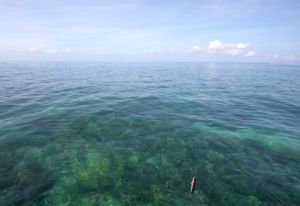A CONFIDENTIAL Public Service Commission survey obtained by the Sydney Morning Herald has shown that 93 per cent of NSW Marine Parks Authority employees feel insecure about their jobs. Figures for Fisheries employees aren’t much better, not surprising given the cynical Cronulla Centre shut down.
Now those of you implacably opposed to marine parks or no-take zones in marine parks will probably say “who cares?” But there is a broader issue at stake. Are no-take zones good in the long run for fish numbers? They’re certainly a feature of most marine parks around the world. For example, the park which runs right along Italy’s Cinque Terra coast has one complete no-take zone (no line, spear and commercial fishing) and two partial no-take zones (no spear or commercial).
The NSW Coalition government recently relaxed no-take rules for beaches and rock platforms in sanctuary zones. Lots of fishos said you beauty. But David Booth, Professor of Marine Ecology at the University of Technology and Chair of the Scientific Advisory Committee, Sydney Institute of Marine Science, has a different opinion, again reported in the SMH. He reckons “The decision to open up marine parks to beach fishing is sadly paralleled by the State Government’s decision to allow recreational hunting in national parks. Both decisions are clearly attempts to court the powerful hunting and fishing lobby groups and win their votes for controversial parliamentary bills.”
He also considers that “The new fishing allowances made by the government apply only to beach fishing but it is likely to be the thin end of the wedge. Other recreational fishers will want equal treatment and can be expected to demand access to these previously off-limits areas. It won’t take long to decimate fish populations inside these newly-opened sanctuary zones.”
He claims that “There is overwhelming scientific evidence that sanctuary zones protect fish from fishing pressure. Much larger and longer-lived individuals are found in these refuges than outside them. The zones may even help protect adjacent fisheries through adult or larval spillover, with new evidence showing that most of the fish caught near marine park zones are born within sanctuary zone boundaries, even if the zones are under 10 per cent of the total area.”
So is he right, both about the politics and the science? Yes to the former, I reckon. And if his scientific opinions are correct, maybe we do need some total no-take zones, even if they are inconvenient to some of us.
I guess the next 50 years or so might “prove” who’s correct … if successive governments provide sufficient funding for valid, ongoing scientific research and for staff to undertake it, something Professor Booth also highlights.
John Newbery is Fishing World’s Environment Editor.

















